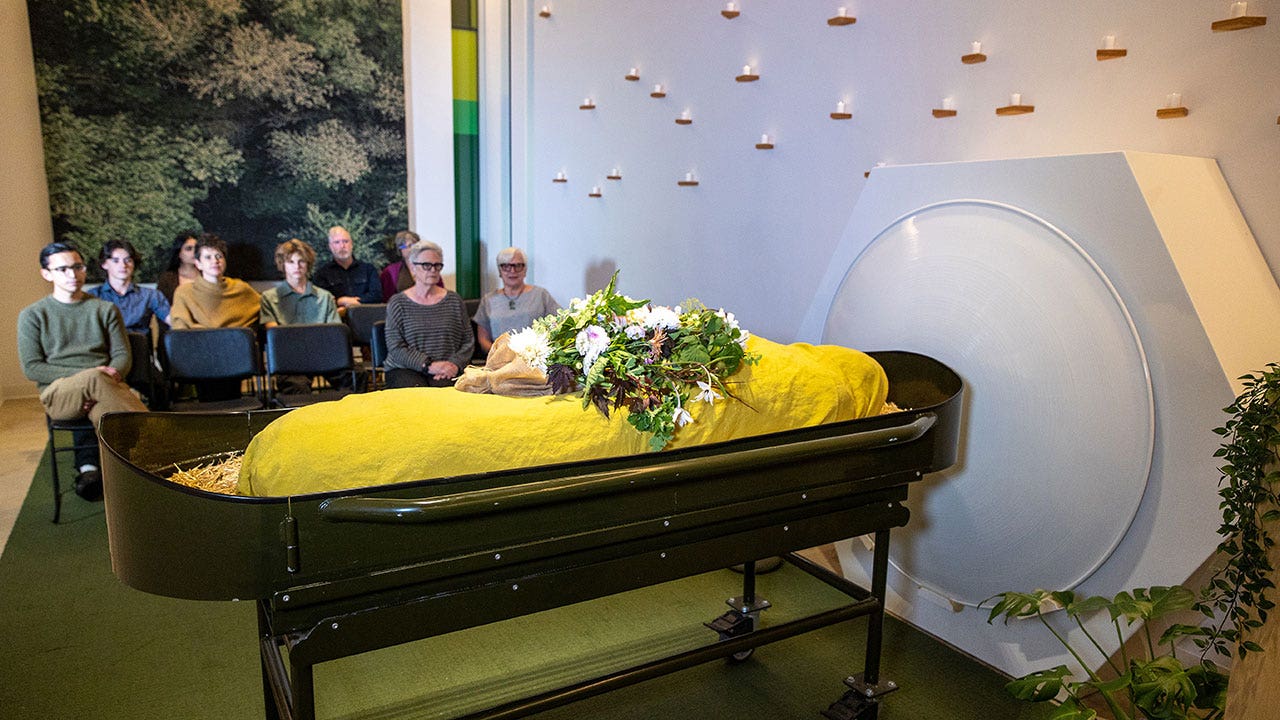Why more and more people are seeking out green burial methods over traditional practices
The push for environmental consciousness has sparked the rise of not only green energy initiatives, but now also the move to "green burials" or "human composting" practices over more traditional methods.
Gaining increasing popularity over the last few years, green burial practices leave little to no environmental impact, with "complete decomposition of the body and its natural return to the soil thus encouraging new growth and restoration of ecosystems," according to the Funeral Consumers Alliance. Additionally, unlike traditional burials that use toxic chemicals, only biodegradable substances are used during the burial process.
In 2019, Washington became the first state to allow human composting, followed by Colorado, Oregon, Vermont, California and New York

 www.foxnews.com
www.foxnews.com
The push for environmental consciousness has sparked the rise of not only green energy initiatives, but now also the move to "green burials" or "human composting" practices over more traditional methods.
Gaining increasing popularity over the last few years, green burial practices leave little to no environmental impact, with "complete decomposition of the body and its natural return to the soil thus encouraging new growth and restoration of ecosystems," according to the Funeral Consumers Alliance. Additionally, unlike traditional burials that use toxic chemicals, only biodegradable substances are used during the burial process.
In 2019, Washington became the first state to allow human composting, followed by Colorado, Oregon, Vermont, California and New York

‘Human composting’ on the rise as ‘green funerals’ become increasingly popular
Green burials, or human composting practices, are growing in popularity across the world. Here is how they differ from traditional burial methods.



 Our vet thought our cat at 22-23 lbs. was too thin for his size. He is 30 inches long and yours, I'm going to guess and say 17-18 inches?
Our vet thought our cat at 22-23 lbs. was too thin for his size. He is 30 inches long and yours, I'm going to guess and say 17-18 inches?